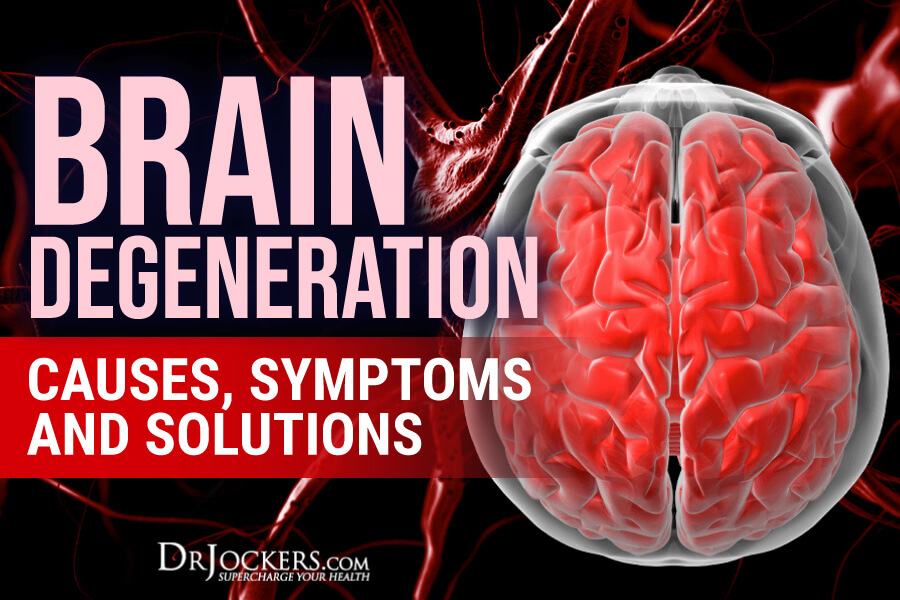
Brain Degeneration: Causes, Symptoms & Solutions
Brain degeneration is a serious topic! Your brain is a powerful organ. It is the command center of your nervous system and the center of all of your body’s functions and systems. It’s responsible for your memory, learning, mental energy, and mood. Yet, brain degenerative disorders are rampant in our world. In the US alone 5 million people are dealing with Alzheimer’s disease, and that’s just one form of brain degeneration.
Brain degeneration is clearly a serious issue and its symptoms, including memory problems, confusion, and mood changes can be quite scary. Chances are, you want to avoid these symptoms, protect your brain, and stay mentally sharp, preserve your memory, and have a good mood for the rest of your life. Thankfully, there are some natural strategies that can help you with that.
In this article, you will learn what brain degeneration is. You will learn about common symptoms and the main causes of brain degeneration. I will share my top natural solutions for brain degeneration to help protect your brain. You owe it to your brain to read, study, and apply this information!
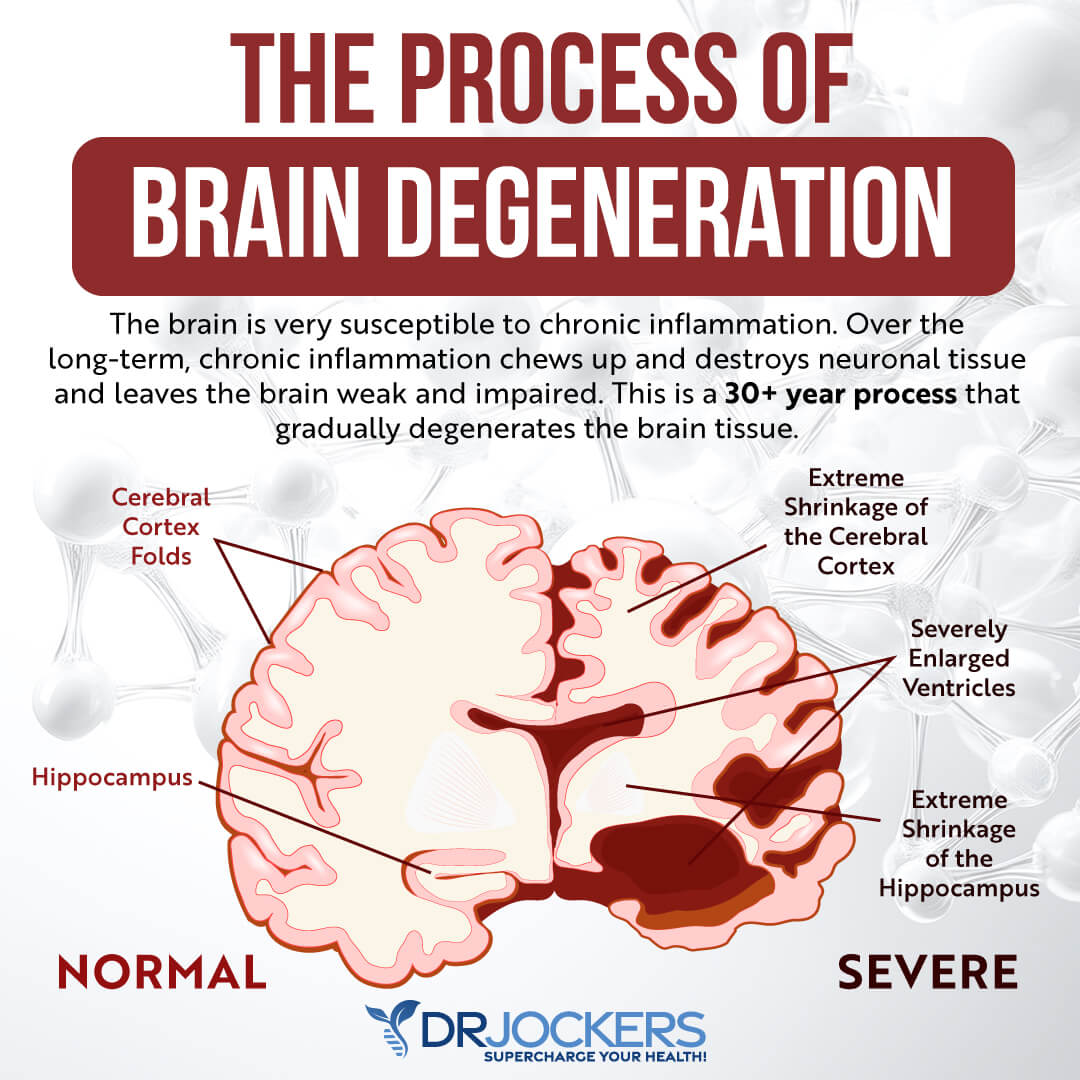
What Is Brain Degeneration
Brain degeneration is a serious problem that our aging society is facing today. Neurodegenerative or brain degenerative diseases cause brain and nerve deterioration over time. They lead to memory issues, confusion, personality changes, and other symptoms depending on the type of brain degeneration. Some brain degenerative disorders, such as dementia, Alzheimer’s disease, and Parkinson’s disease develop and worsen over time as you age, while others, such as Tay-Sachs disease are genetic and develop at an earlier age.
Brain degenerative problems are on the rise. About 5 million people are affected by Alzheimer’s disease, 1 million with Parkinson’s disease, 400,000 with multiple sclerosis (MS), 30,000 with Huntington’s disease, and 30,000 with amyotrophic lateral sclerosis (ALS) in the United States alone (1, 2, 3).
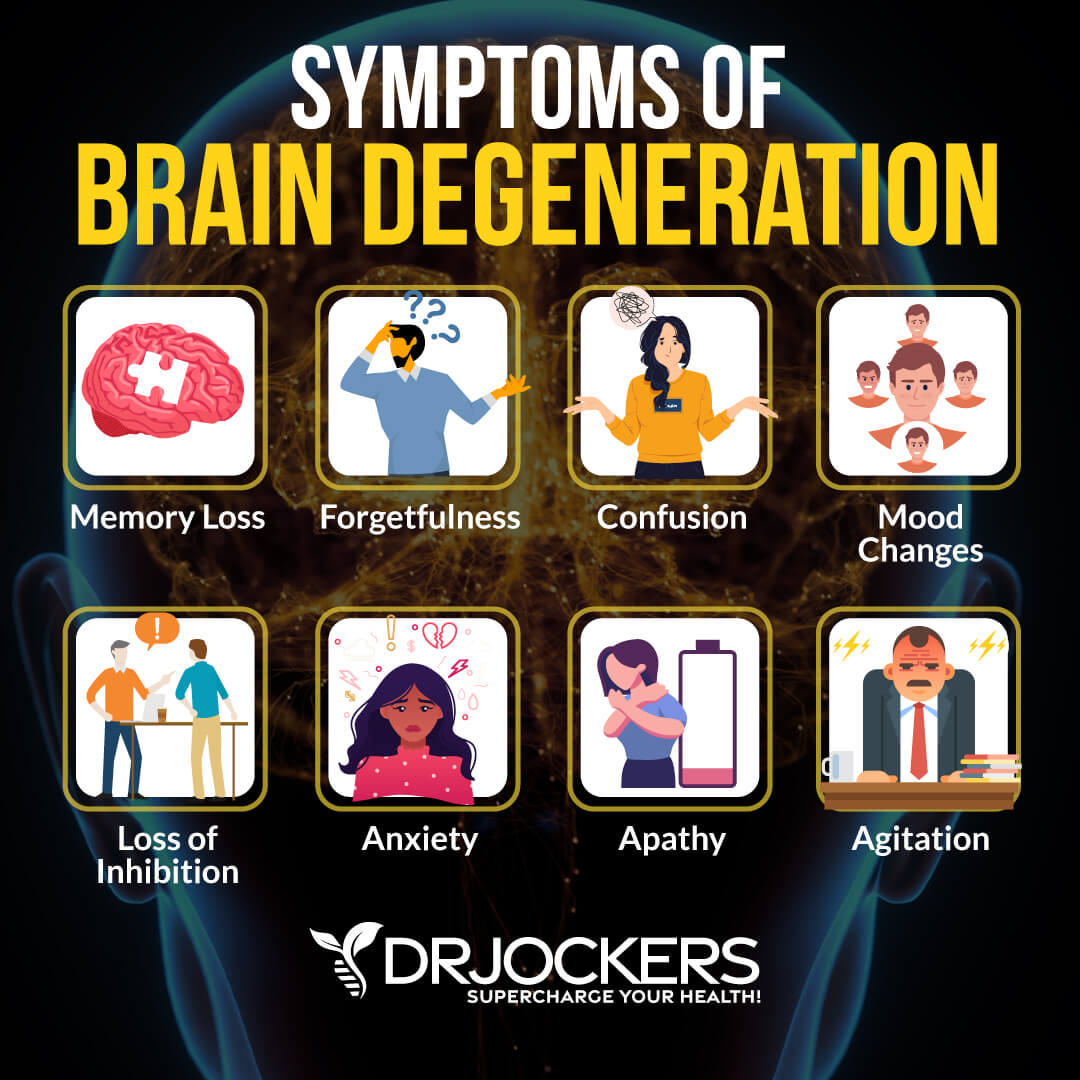
Major Symptoms of Brain Degeneration
Symptoms of brain degeneration may depend on the type of neurodegenerative disorder you may be experiencing. Common symptoms include:
- Memory loss
- Forgetfulness
- Confusion
- Mood changes
- Loss of inhibition
- Anxiety
- Apathy
- Agitation
New symptoms can develop and symptoms usually get worse over time as the condition progresses. There is currently no cure for neurodegenerative diseases, however, early diagnosis and treatment can be highly beneficial.
Traditional treatment involves medication and behavioral management, however, natural treatment methods, including diet and lifestyle changes may improve the condition or delay symptoms significantly. These dietary and lifestyle strategies are also an absolute key to preventing brain degeneration. Before we dive into natural solutions for brain degeneration, let’s discuss some of the major causes of brain degeneration (4, 5).
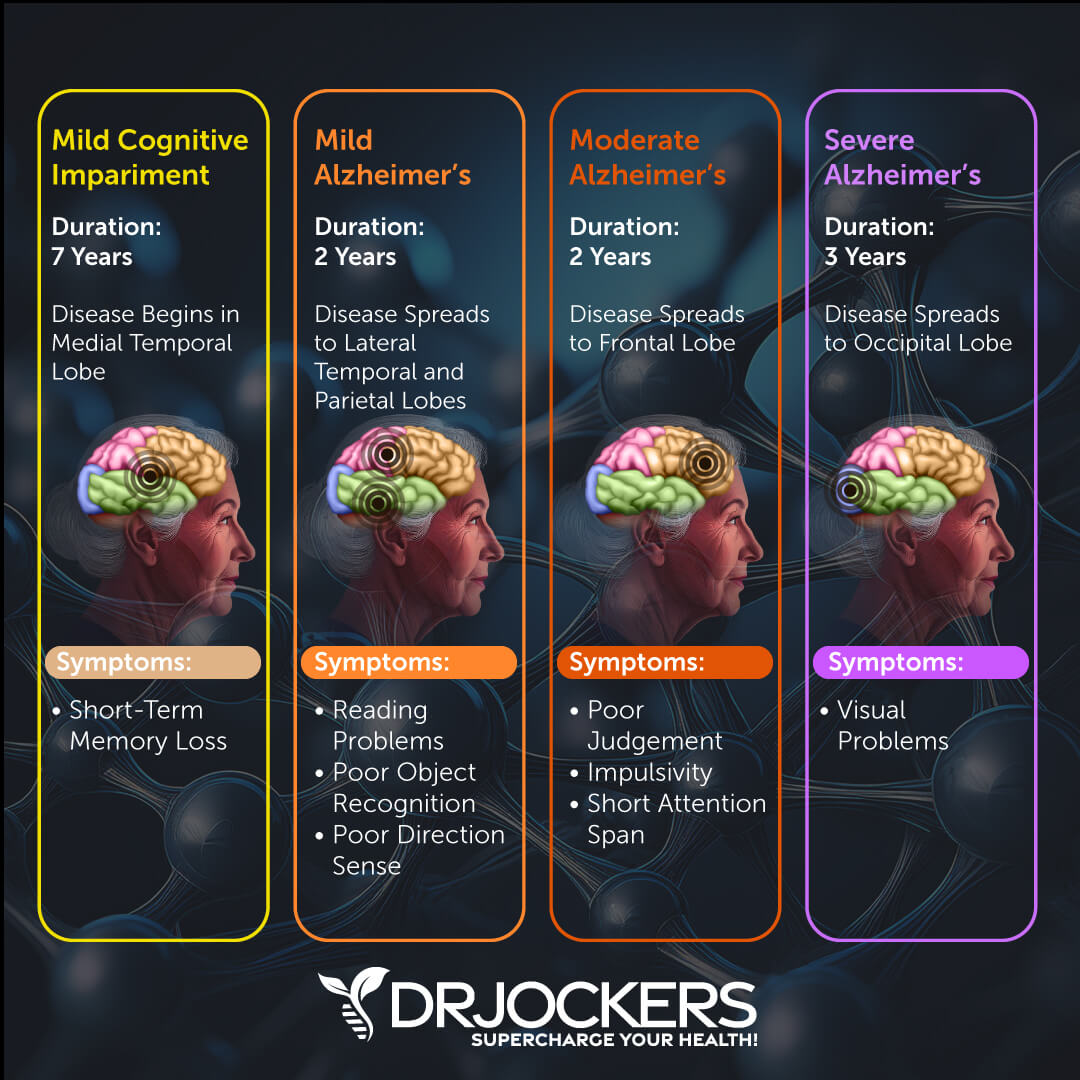
Major Causes of Brain Degeneration
To prevent and treat brain degeneration effectively, first, you have to understand the factors that affect your brain health and may lead to brain degeneration. Most people are doing things every day that are progressively degenerating their brain and they don’t know this is happening.
Your diet, lifestyle, and overall health all affect your brain health. Let’s take a look at the major causes of brain degeneration.
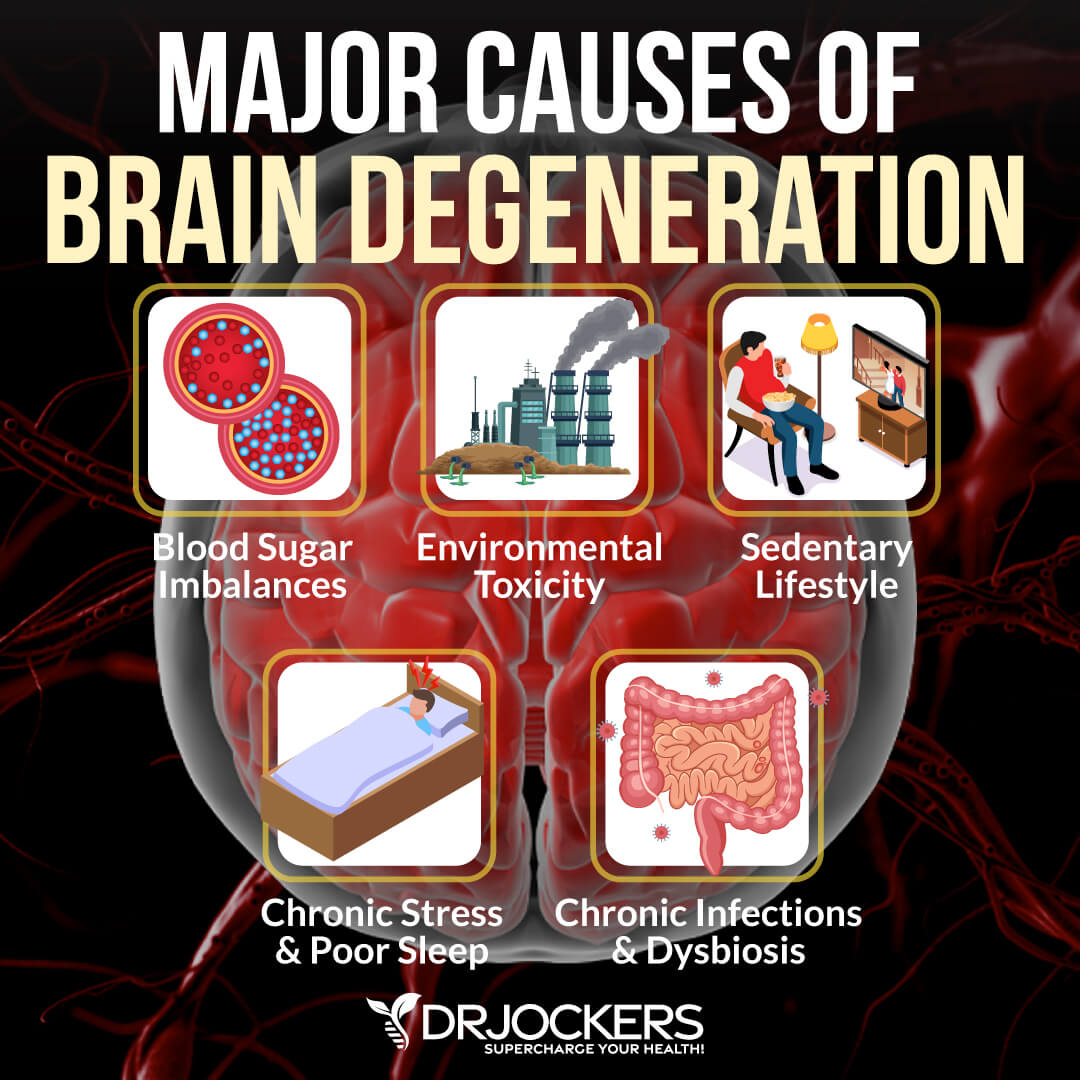
Blood Sugar Imbalances
When you hear the term blood sugar imbalances, you probably think about diabetes. Blood sugar imbalances, however, not only increase your risk of diabetes but also compromise your brain health. If your diet is high in processed carbs and refined sugar and low in vegetables, healthy fat, and clean protein, you are setting yourself up for blood sugar imbalances.
Blood sugar imbalances may lead to memory issues, brain fog, irritability, mood fluctuations, lightheadedness, cravings, and fatigue. Eating a high carb quick snack or meal may give you a burst of energy, but it will also lead to a sugar drop soon after characterized by brain fog and tiredness (6, 7).
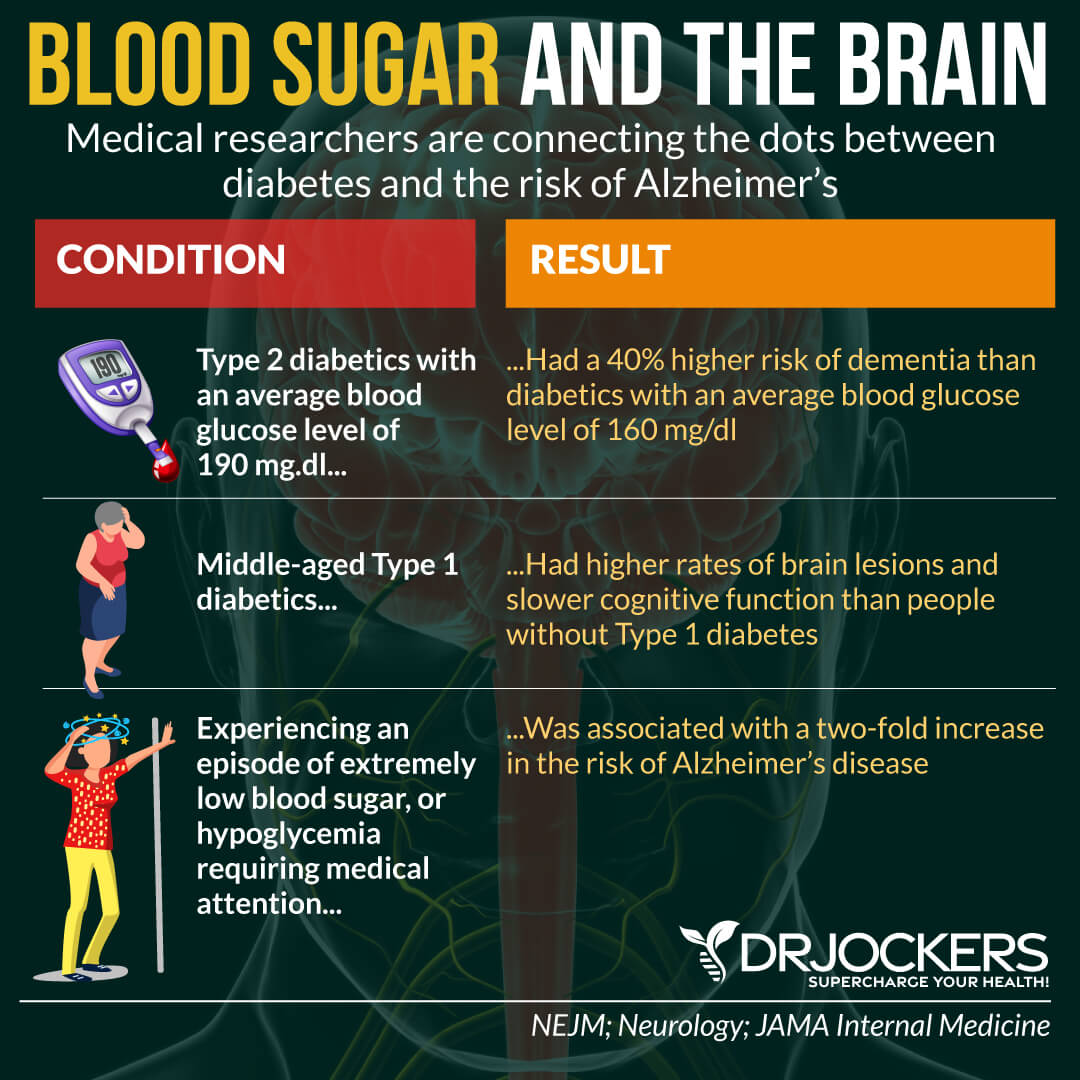
Environmental Toxicity
Toxins are unfortunately all around us in our polluted air, municipal tap water, non-organic and processed foods, plastic products, moldy indoor spaces, and conventional beauty, body, and household products. The problem is that all these environmental toxins may have a serious impact on our brain and overall health.
Neurotoxins, such as ethanol (in alcohol), glutamate, mycotoxins, nitric oxide, botulinum toxin (in Botox), tetrodotoxin, and tetanus toxin, are particularly damaging to your neurological functioning. Environmental toxicity may lead to memory problems, brain fog, dementia, neurodegenerative diseases, mood swings, irritability, fatigue, anxiety, depression, and mental health issues (8, 9, 10).
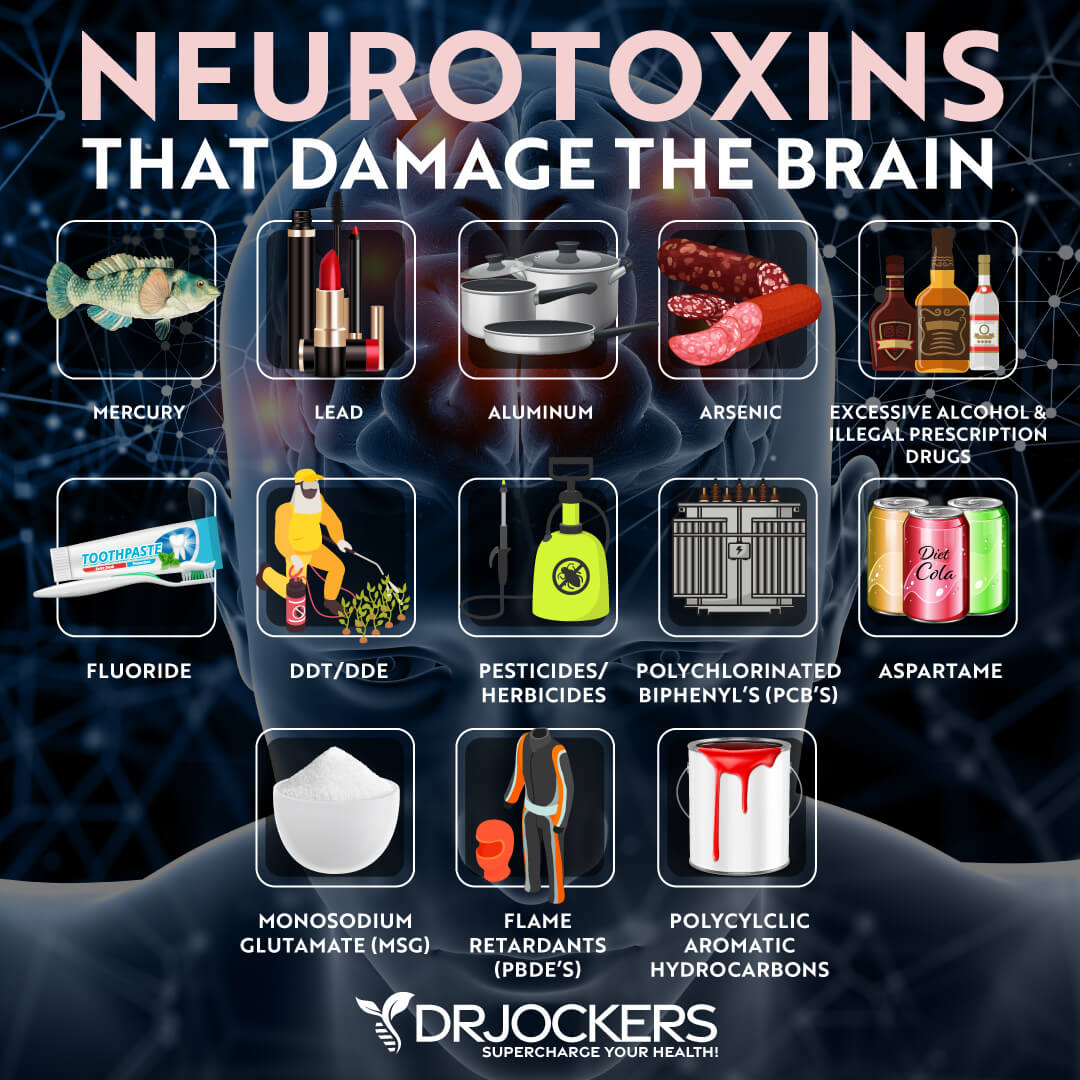
Sedentary Lifestyle
You may think that exercise and movement are only important for your physical strength, toned look, or cardiovascular fitness. The truth is that they are critical for your brain health as well.
Regular movement is especially crucial for the areas of your brain that are important for memory formation. Leading a sedentary lifestyle may increase your risk of memory problems, learning troubles, and cognitive decline (11, 12).
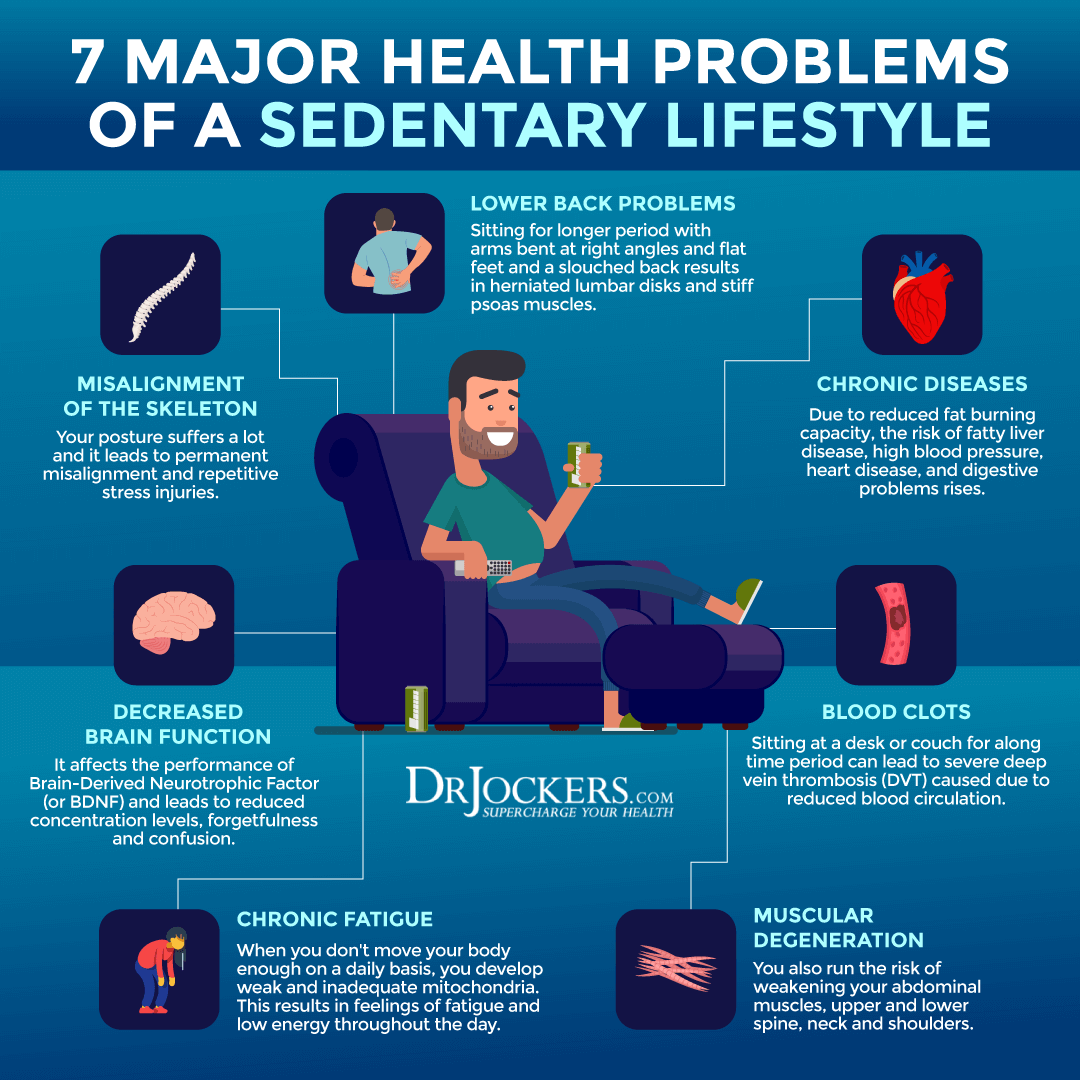
Chronic Stress and Poor Sleep Habits
The amygdala in your brain is responsible for emotional processing. When you are under stress, your amygdala signals your hypothalamus which response will increase your heart rate, heighten your senses, lead to heavier breathing and greater oxygen intake, increase cortisol levels, and rush adrenaline across your system. The problem is that if you are experiencing chronic stress, this stress response never ends which leads to cortisol build-up.
Cortisol is not only important for your stress response, but it also helps your hippocampus, the part of your brain where your memories are processed and stored. When there is too much cortisol in your system due to chronic stress, it can wear your brain down. It can impair brain and memory function, disrupt synapse regulation, and kill brain cells. Chronic stress has a seriously negative effect on your memory and learning and increases your risk of brain degeneration (13, 14, 15).
If you are experiencing poor sleep on a regular basis, it may have a serious impact on your brain and overall health. Poor sleep may increase the likelihood of chronic stress, high cortisol, fatigue, and chronic inflammation. These factors may contribute to brain fog, memory troubles, learning difficulties, mood swings, and low mood. Sleep deprivation may also increase the risk of dementia, Alzheimer’s disease, and other neurodegenerative diseases (16, 17, 18).
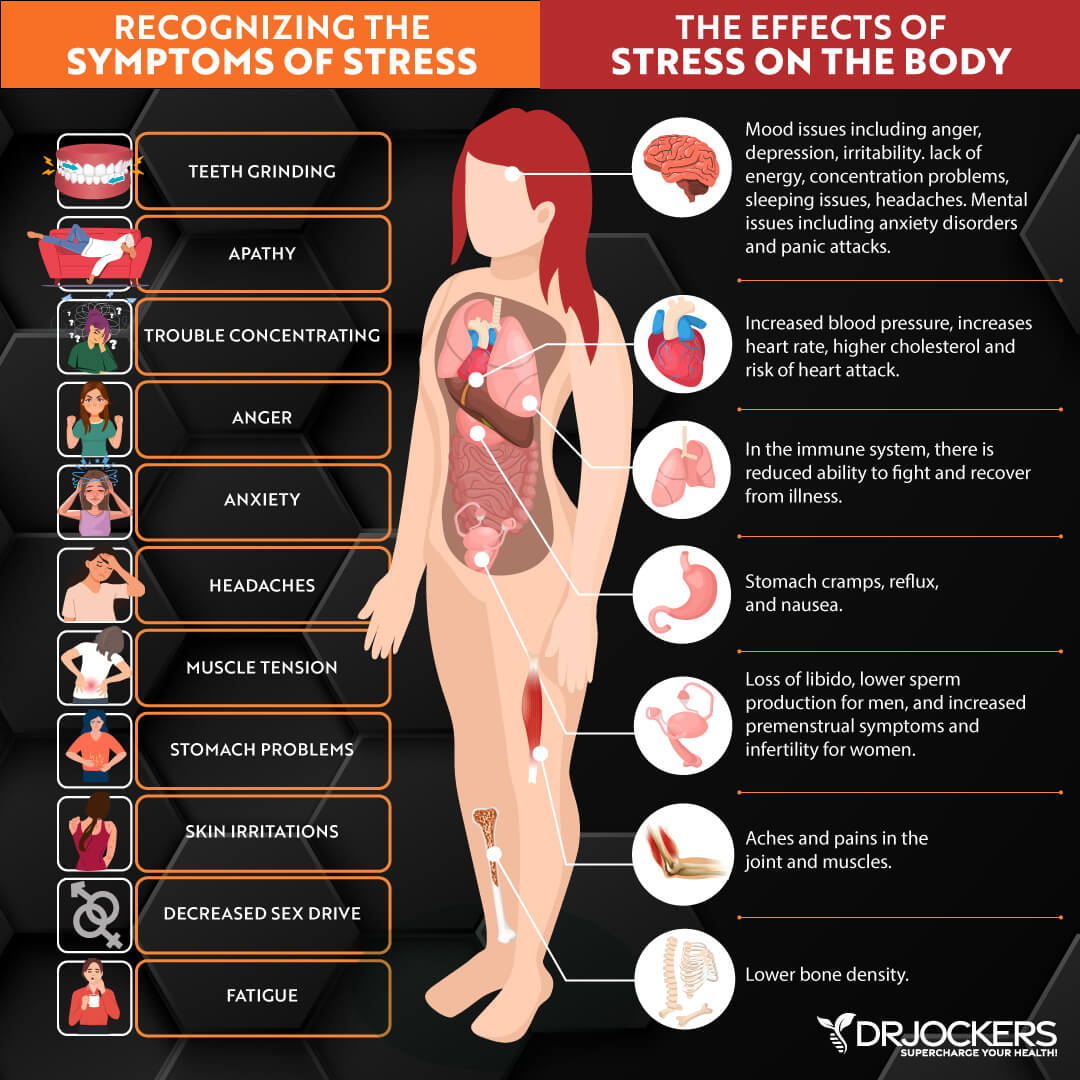
Gut Infections and Dysbiosis
Again, if you think about your gut health, your brain may not be the first thing that comes to mind. However, there is a clear and strong connection between your gut and brain health. Just think about it. Before a speaking engagement, new date, or any other important event, you may experience gut problems or at least butterflies in your stomach.
This connection between your gut and brain not only happens when short-term exciting or stressful events occur, but the communication between these two organs is ongoing, long-term, and intimate. Gut dysbiosis and gut infections lead to an imbalance in your entire body and increase chronic inflammation.
Gut microbiome imbalance and consequent chronic inflammation may lead to brain degeneration. They may increase your risk and symptoms of brain fog, memory problems, learning difficulties, cognition, mental health issues, mood imbalances, and neurodegenerative diseases (19, 20, 21, 22).
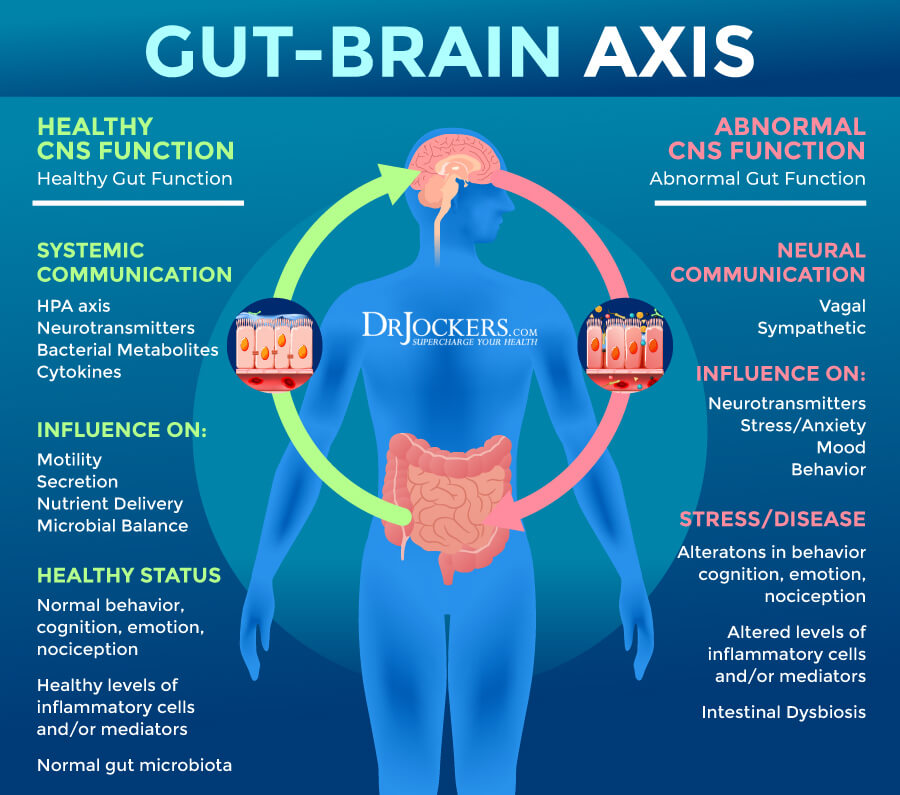
Natural Solutions for Brain Degeneration
Brain degeneration can be quite scary. You want to stay mentally sharp, preserve your memory, and have a good mood for the rest of your life.
The good news is that there are several natural solutions for brain degeneration. Here is what I recommend to prevent and delay or reduce the symptoms of brain degeneration.
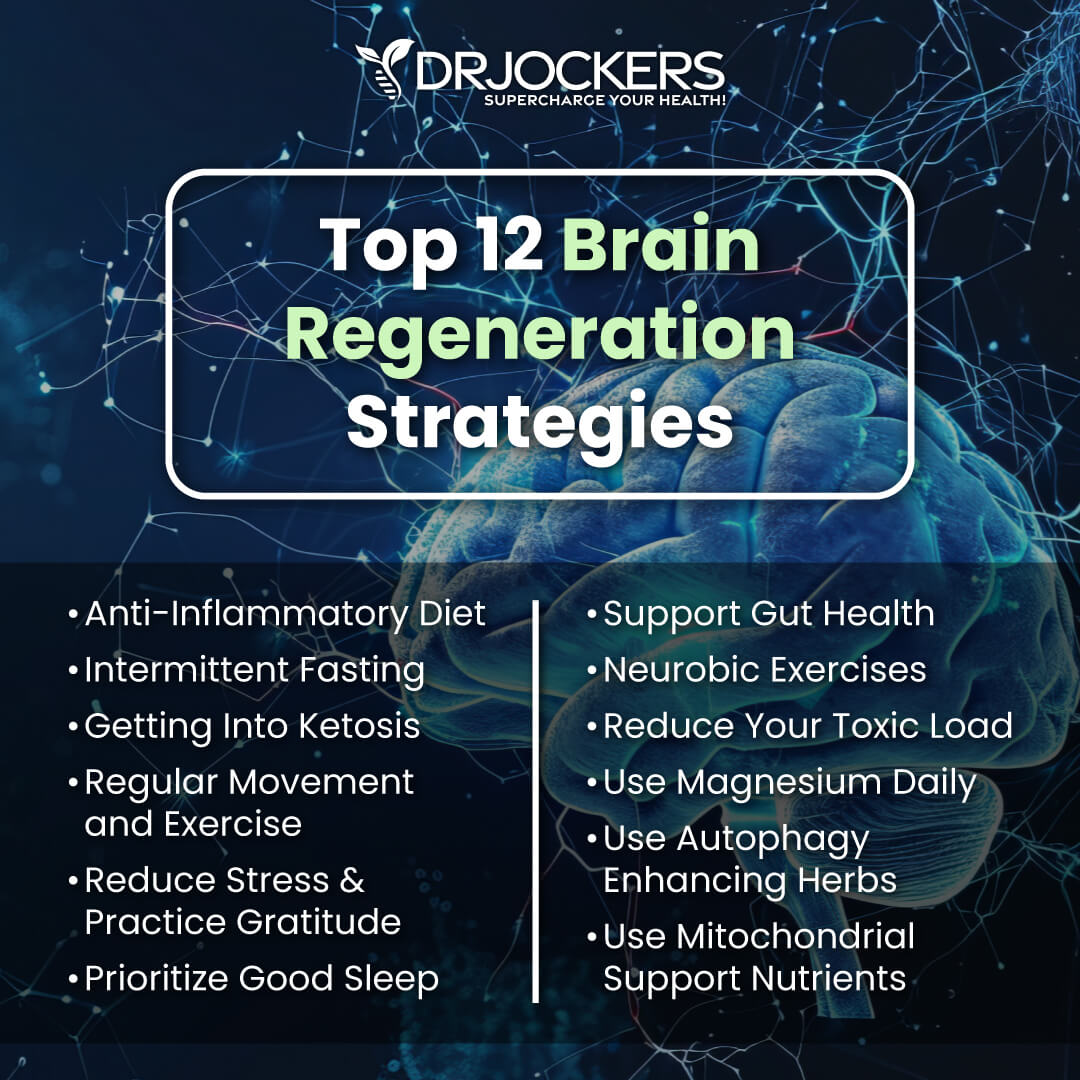
Anti-Inflammatory Diet
Eating an anti-inflammatory diet rich in nutrient-dense foods is the first best thing you can do to prevent brain degeneration and improve your brain health. First, eliminate all inflammatory foods, including refined sugar, gluten, refined oils, deep-fried and processed foods, conventional dairy, grain-fed meat and eggs, soda and sugary drinks, and foods that you are sensitive to.
Instead, I recommend eating an anti-inflammatory diet and loading up on greens, vegetables, low glycemic index fruits, herbs, spices, healthy fats, grass-fed meat, and wild-caught fish. To learn more about an anti-inflammatory diet, read this article as well.
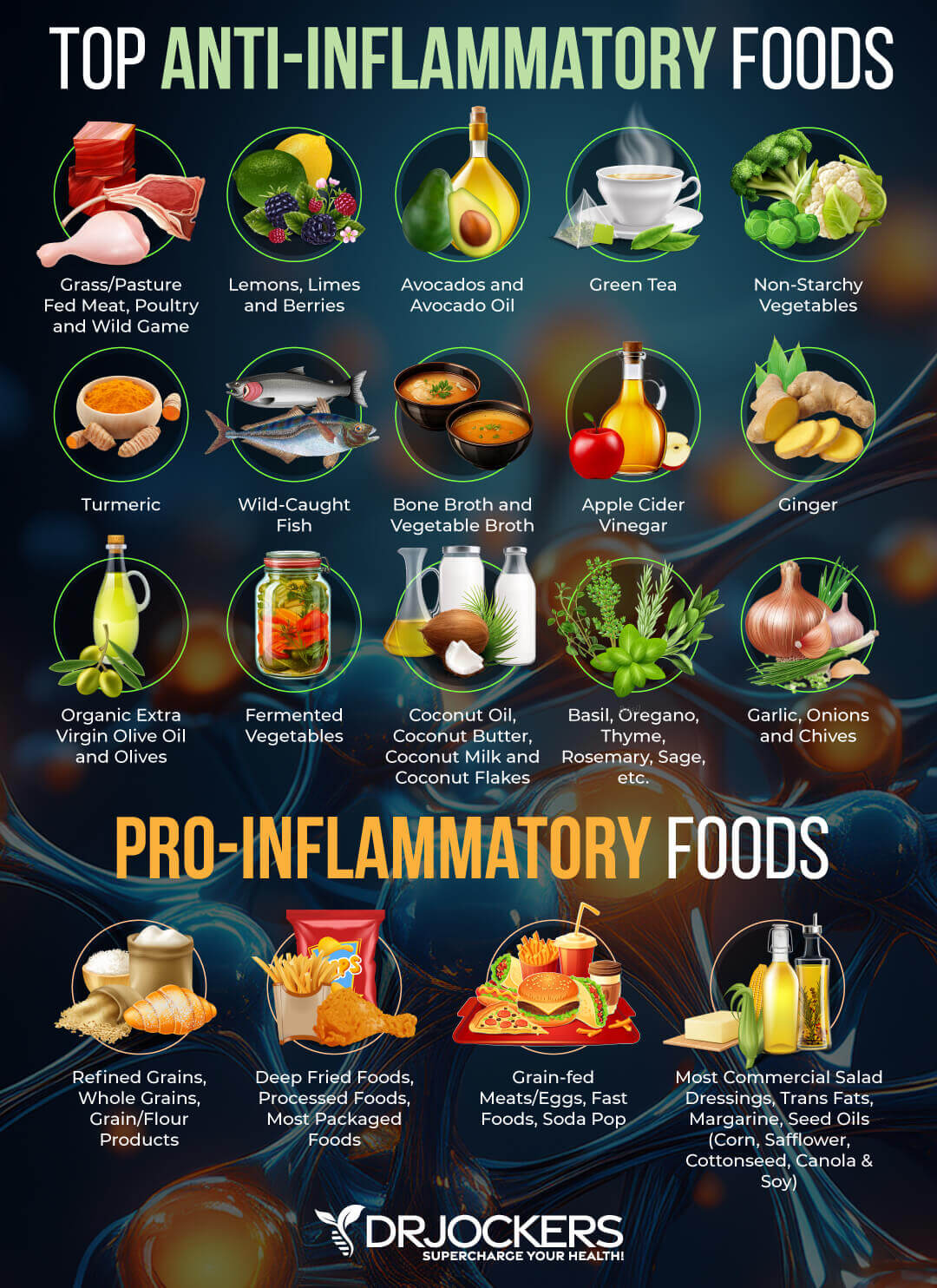
Intermittent Fasting
Intermittent fasting is a form of fasting cycle between not eating (fasting) and eating (feasting) over a period of time. The benefits of intermittent fasting benefits include cellular repair, autophagy, immune regulation, inflammation levels, and insulin sensitivity.
It also helps to lower the risk of chronic diseases, including neurodegenerative conditions, such as dementia and Alzheimer’s. To learn more about the benefits of intermittent fasting and best intermittent fasting practices, I recommend this article.
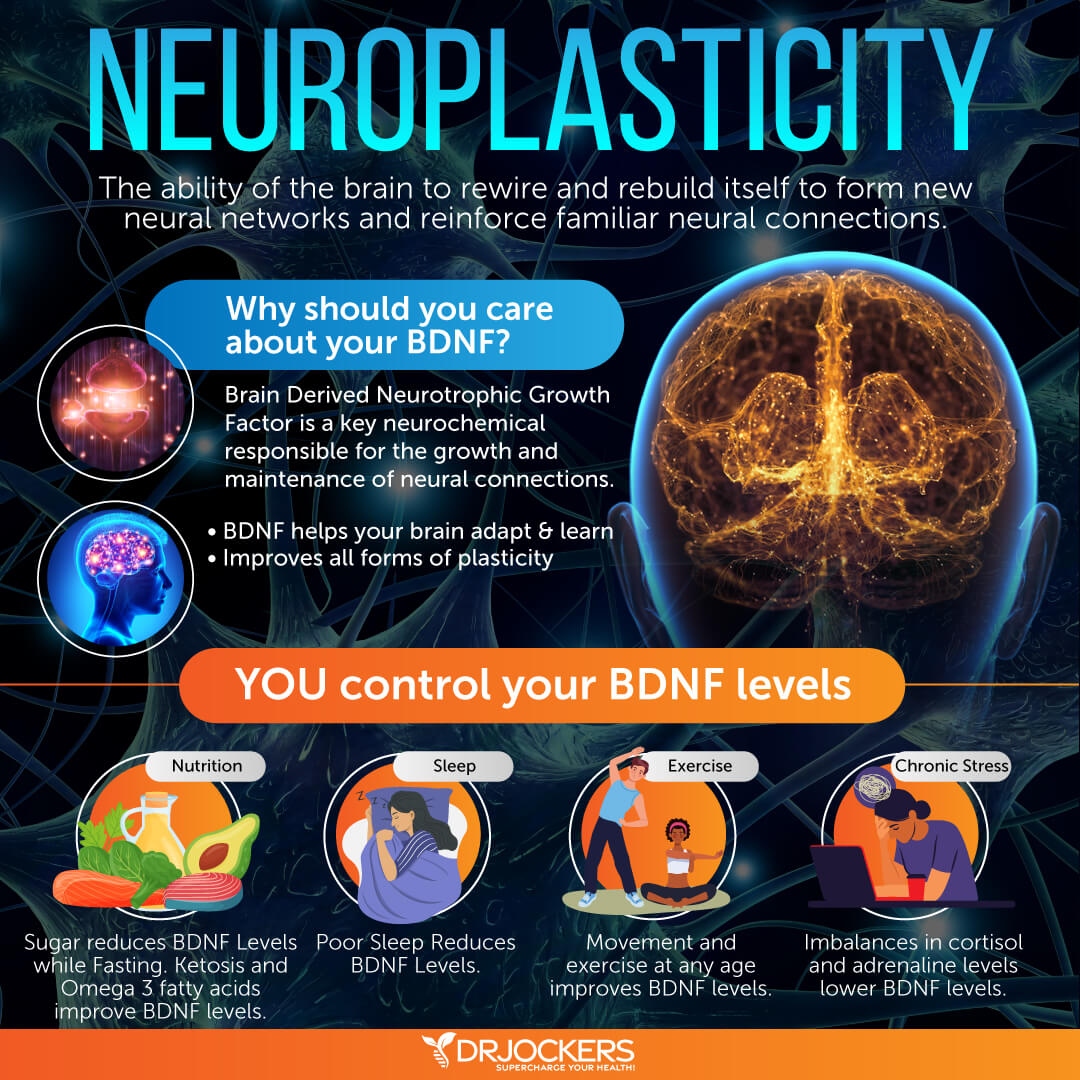
Getting Into Ketosis from Time to Time
Most people eat a diet that is heavy or moderate in carbohydrates. This means that their body relies on glucose from dietary carbs to create energy.
However, when your body doesn’t receive enough glucose because of a high-fat diet or fasting, it turns to dietary or stored body fat for energy. When this happens, fats get converted in the liver into ketones that enter your mitochondria inside your cells and then get turned into energy.
The benefits of ketosis include enhanced autophagy, reduced inflammation, improved mitochondrial biogenesis, improved brain health, and better mental sharpness. The easiest and best way to achieve ketosis is through the combination of the keto diet and intermittent fasting. To learn more about ketosis, I recommend reading this article, and to learn more about the keto diet, I recommend this one (23, 24, 25, 26, 27, 28, 29, 30, 31, 32).
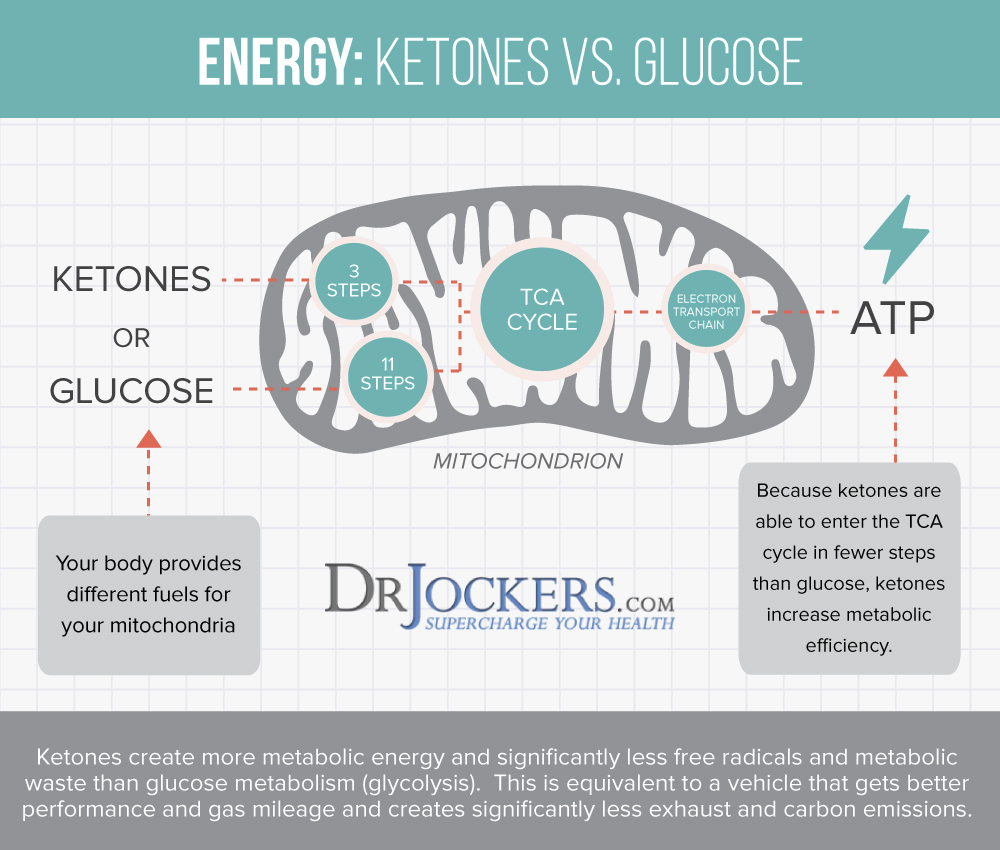
Prioritize Good Sleep
If you want to prevent brain degeneration or improve your symptoms, prioritizing good sleep is critical. Sleep is necessary for rest, repair, and cellular rejuvenation, which means that sleep allows your brain cells to regenerate and new brain cells to form.
To improve your sleep, avoid sugar and caffeine throughout the day, especially in the evening, try not to eat late at night, reduce stress, and turn off electronics several hours before bedtime. Wind down using relaxing activities, such as reading, crossword puzzles, healing baths, journaling, meditation, and prayer. Invest in a comfortable bed, bedding, pillows, and black-out curtains, or a sleep mask.

Reduce Stress and Practice Gratitude
Reducing stress is essential for preventing and reducing brain degeneration. To lower your stress levels, I recommend regular movement, meditation, breathwork, journaling, relaxation recordings, nature walks, positive self-talk, affirmation, daily gratitude, and prayer.
Practice daily gratitude by keeping a daily gratitude journal and stopping to appreciate the small things throughout the day. This is one of the most important things you can do for your brain health each and every day!
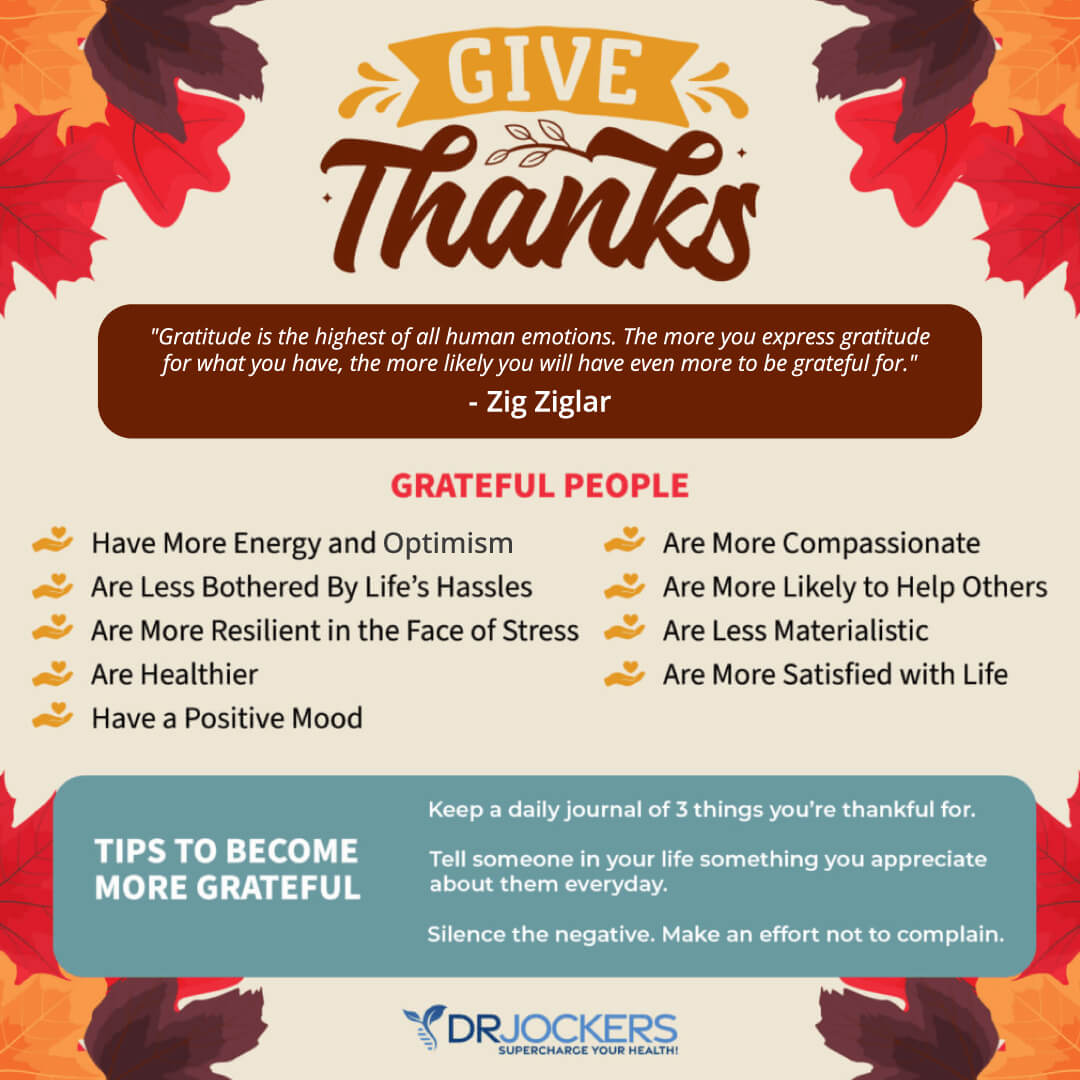
Regular Movement and Exercise
Movement and exercise are critical for brain health and can play an important role in the prevention and treatment of brain degeneration. Regular movement may help to reduce chronic inflammation, decrease stress levels, and lower the risk of memory problems, learning troubles, and cognitive decline.
Movement is one of the simplest things you can do to help support better brain health. When you do some sort of movement, such as walking, you activate myokines, which are small proteins released from the muscle cells.
These myokines increase brain-derived neurotrophic factor (BDNF) which is a powerful stimulant for healthy neurons and neuronal communication patterns. BDNF production helps keep the brain functioning at a high level and prevents neurodegenerative conditions.
Aim to exercise at least 20 to 30 minutes minimally 5 times a week combining cardiovascular exercise, strength and resistance training, and low-impact exercise. Make a commitment to stay active throughout the day. Take a walk during lunch, stretch regularly, play with your kids or pets, dance to your favorite song, take the stairs, and find other creative ways to sneak in movement into your day.
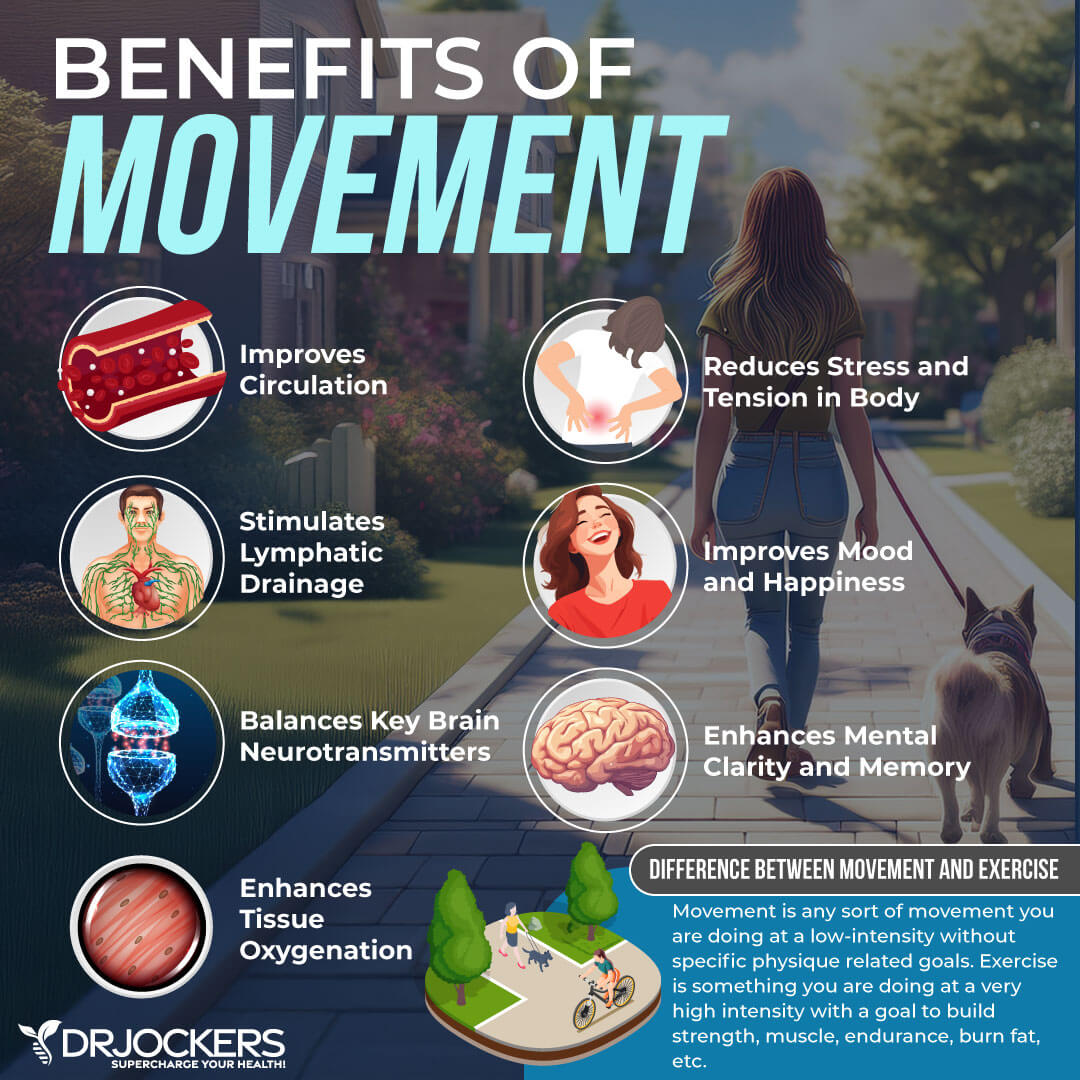
Support Gut Health
Your brain and gut are closely connected and supporting your gut is important for preventing and reducing brain degeneration. Make sure gut-friendly, anti-inflammatory, and nutrient-dense diet abundant in veggies, healthy fats, clean protein, and probiotic-rich foods, such as sauerkraut, kimchi, and kefir.
Additionally, I recommend taking a daily probiotic supplement. Probiotics helps to optimize your gut health and improve your nutrient absorption while reducing gut related inflammation. When gut inflammation goes down it also reduces inflammatory mediators in the brain.

Reduce Your Toxic Load
Reducing your toxic load is a key step to prevent and reduce brain degeneration. Buy organic food as much as possible. Keep in mind the Dirty Dozen, Clean Fifteen list if you are unable to buy everything organic. Remove conventional beauty, body, and household products, and replace them with organic, natural, or homemade alternatives.
Drink clean, toxin-free water by using a high-quality reverse osmosis system, such as the iSpring. You can also get a quality Berkey filter or take it up a notch and use a hydrogen water system which adds molecular hydrogen to combat oxidative stress and improve immune health.
Spend time in nature as much as possible by taking nature walks, grounding, or simply sitting outside reading a book or meditating. Using an infrared sauna to help induce sweating and deep heat penetration into our cells as that can really improve detoxification as well.
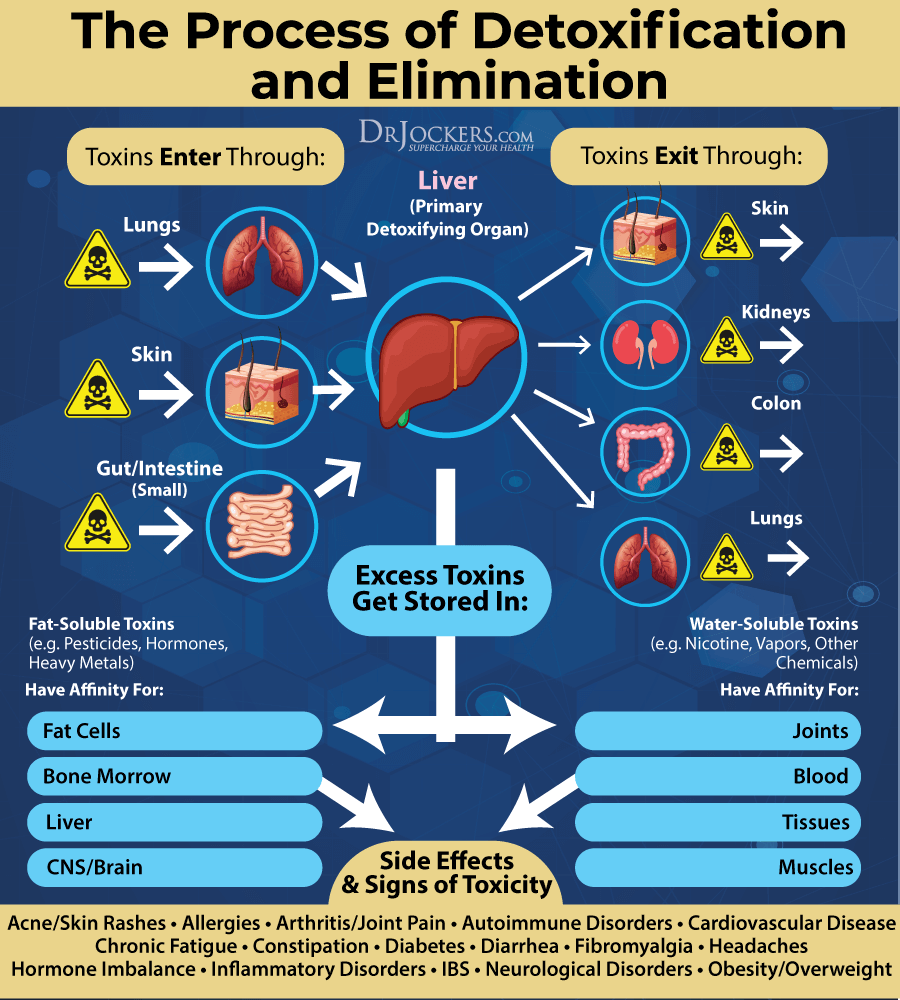
Neurobic Exercises
Neurobics is a term used for the physiological effects of unique and non-routine ways of thinking and moving and their effects on the brain to improve memory, learning, mood, mental energy, and mindset.
Some of my favorite neurobics exercises include crossword puzzles, using your non-dominant hand, balancing on one leg, trying a new instrument, barefoot walking, and journaling. To learn more about the benefits of neurobics exercises, I recommend this article.
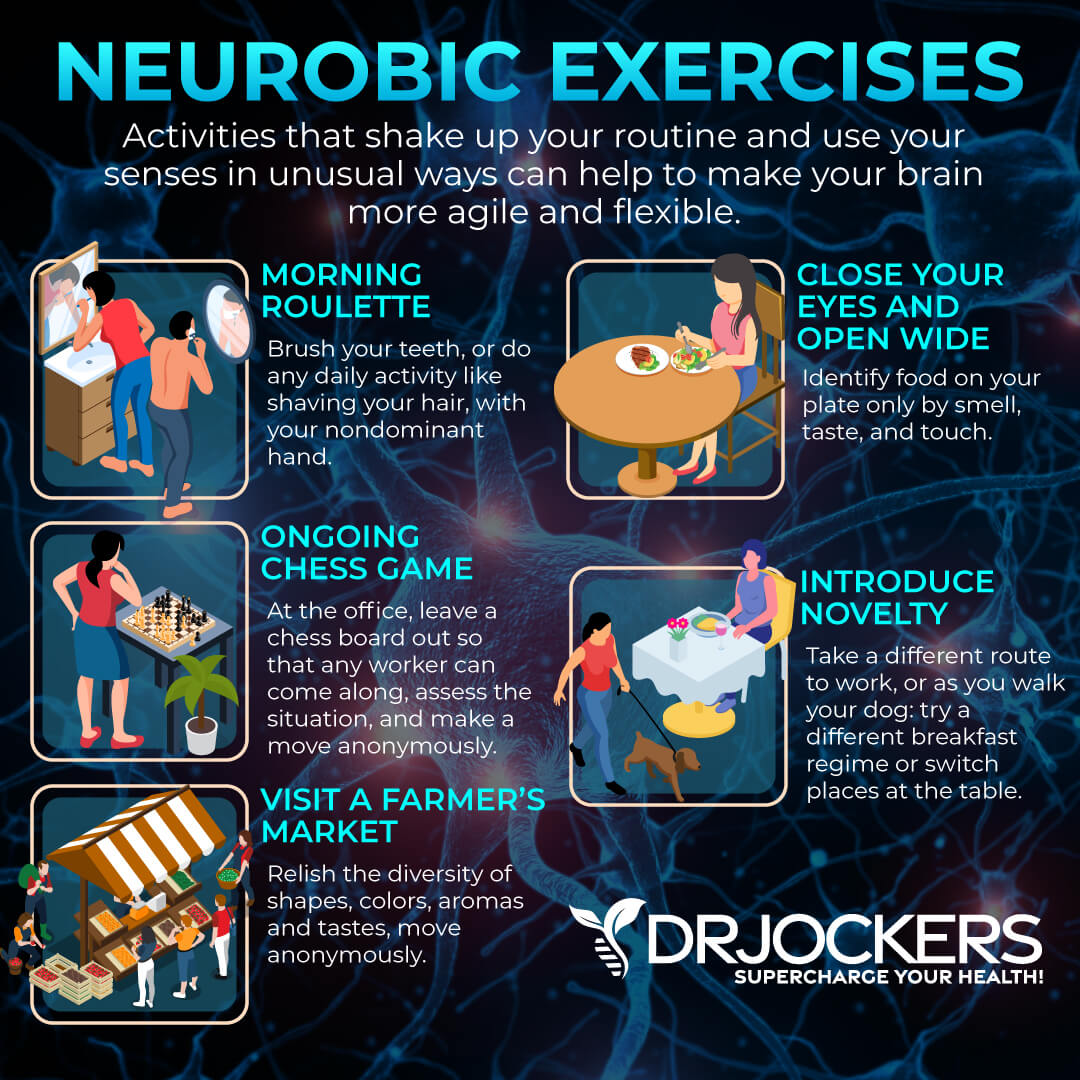
Use Magnesium
Magnesium is a critical mineral that most people are deficient in. It is important for brain health, mental health, stress relief, and relaxation. Almonds, spinach, avocadoes, bananas, kale, pumpkin seeds, sunflower seeds, and cashews are great sources of magnesium, however, they are usually not enough to optimize your magnesium levels.
To improve your magnesium levels and protect your brain from brain degeneration, I recommend Brain Calm Magnesium. This supplement helps muscle function, healthy nerve conduction, neurological function, energy production, mood, and mental health. Dissolve one scoop in 6 oz of cool, pure water. Take it once a day at night.
Use Omega-3 Fatty Acids
Omega-3 fatty acids, including eicosapentaenoic acid (EPA) and docosahexaenoic acid (DHA) are incredible for brain health and may help to prevent or improve brain degeneration. It may help dementia, Alzheimer’s disease, depression, and anxiety, among other brain and mental health conditions.
While wild-caught fish is a great source of omega-3 fatty acids, I recommend supplementation as well to reduce inflammation and brain degeneration. To protect your brain from brain degeneration, I recommend ProOmega Curcumin. This supplement helps to down-regulating inflammation and oxidative stress quickly, support a healthy gut, optimize cellular expression and cell signaling, and improve your brain health (33, 34).
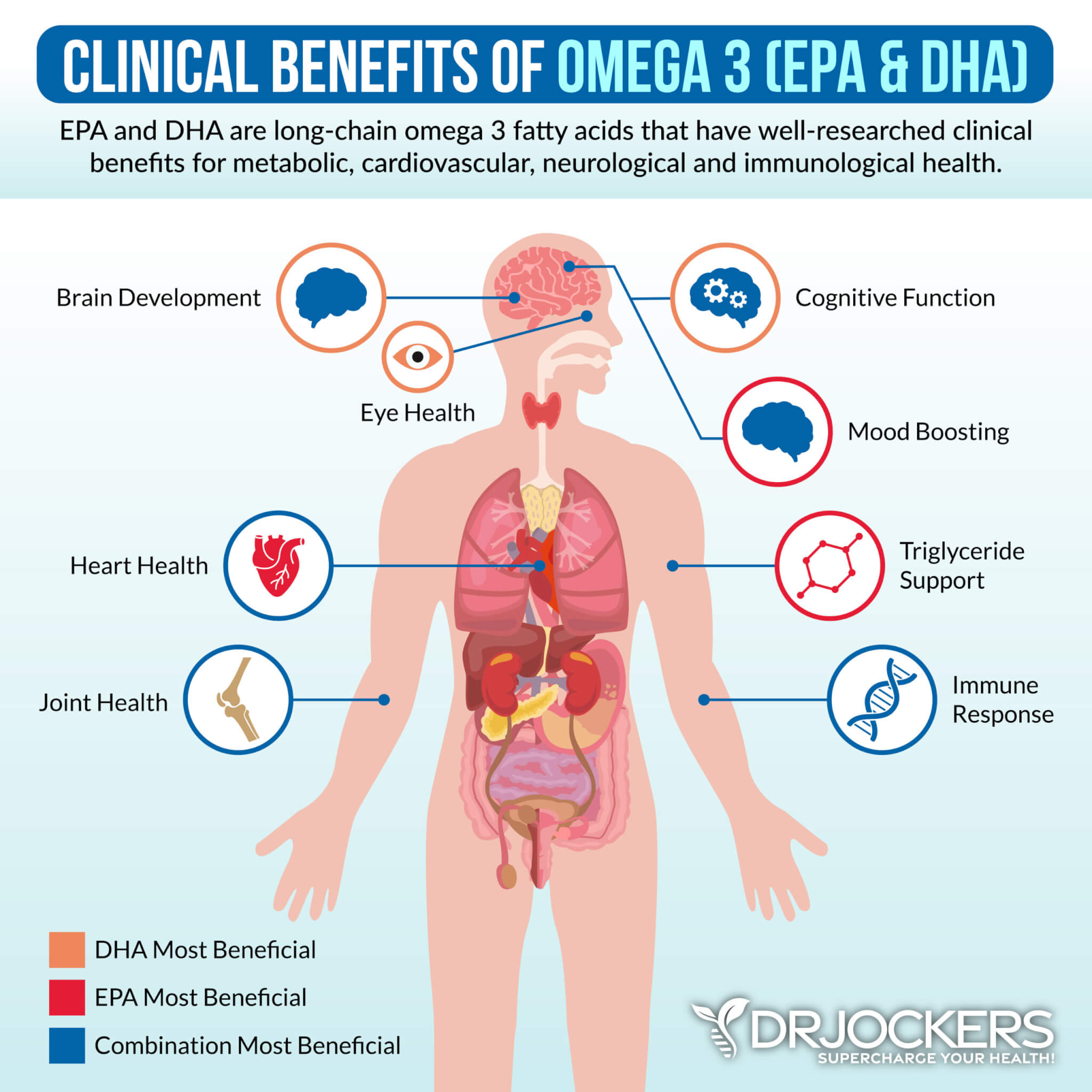
Use Mitochondrial Support Nutrients
Your mitochondria is the powerhouse of your cell, hence supporting your mitochondria is critical to protect your brain cells from brain degeneration. I recommend Mito Support™ for mitochondrial support and against brain degeneration.
This powerful supplement is a blend of nutrients, nutraceuticals, botanicals, and Krebs cycle intermediates designed to support efficient mitochondrial metabolism, energy (ATP) production for increased vitality, brain health, cognition, and mental health.
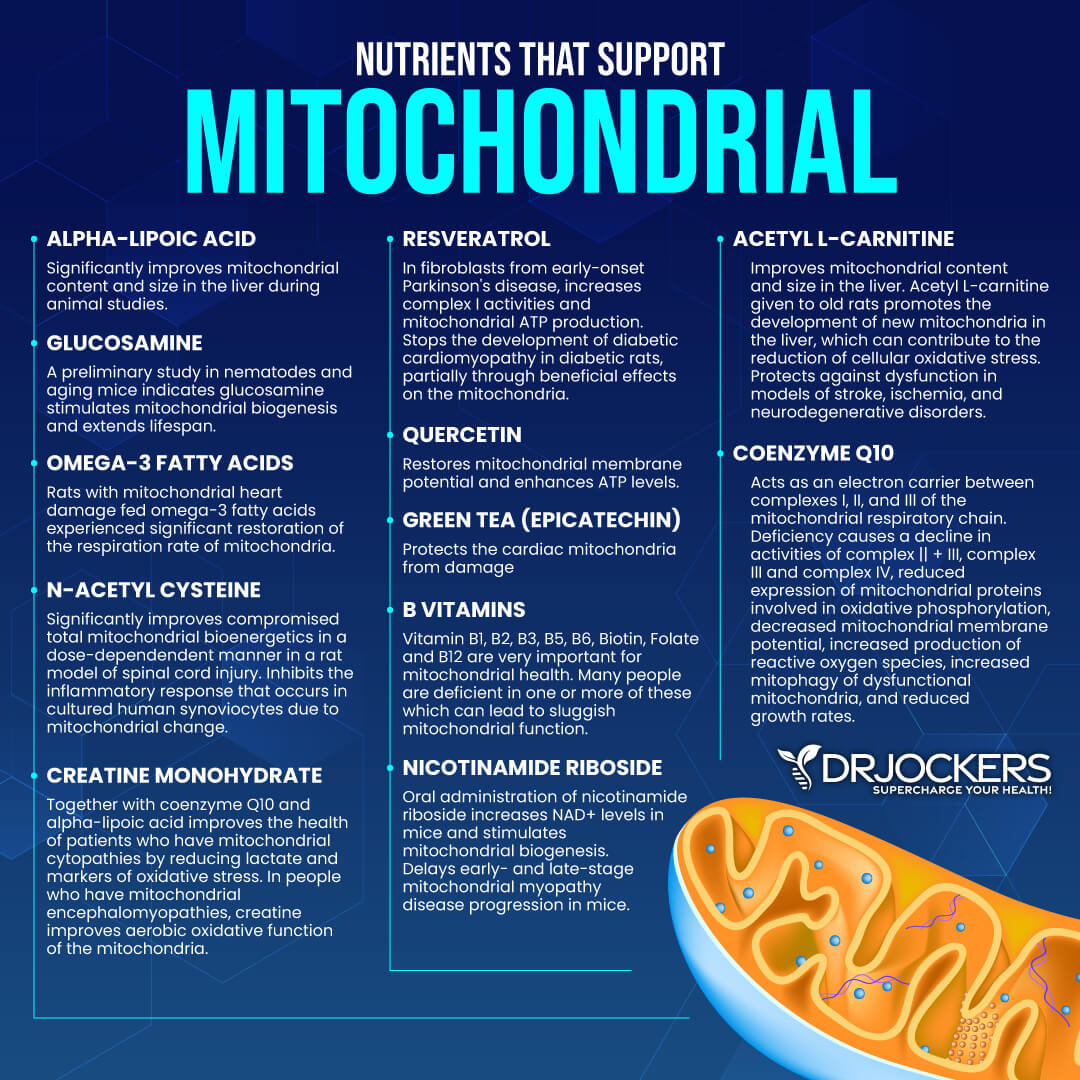
 Bonus: Consider Hyperbaric Oxygen Therapy
Bonus: Consider Hyperbaric Oxygen Therapy
For bonus brain degeneration and brain health support, I recommend hyperbaric oxygen therapy. Hyperbaric oxygen support may help to raise tissue oxygen levels, increase your body’s defense system, encourage new blood vessel growth, reduce swelling, increase stem cells, and support optimal health.
To learn more about hyperbaric oxygen therapy, I recommend reading this article (35, 36, 37, 38, 39).
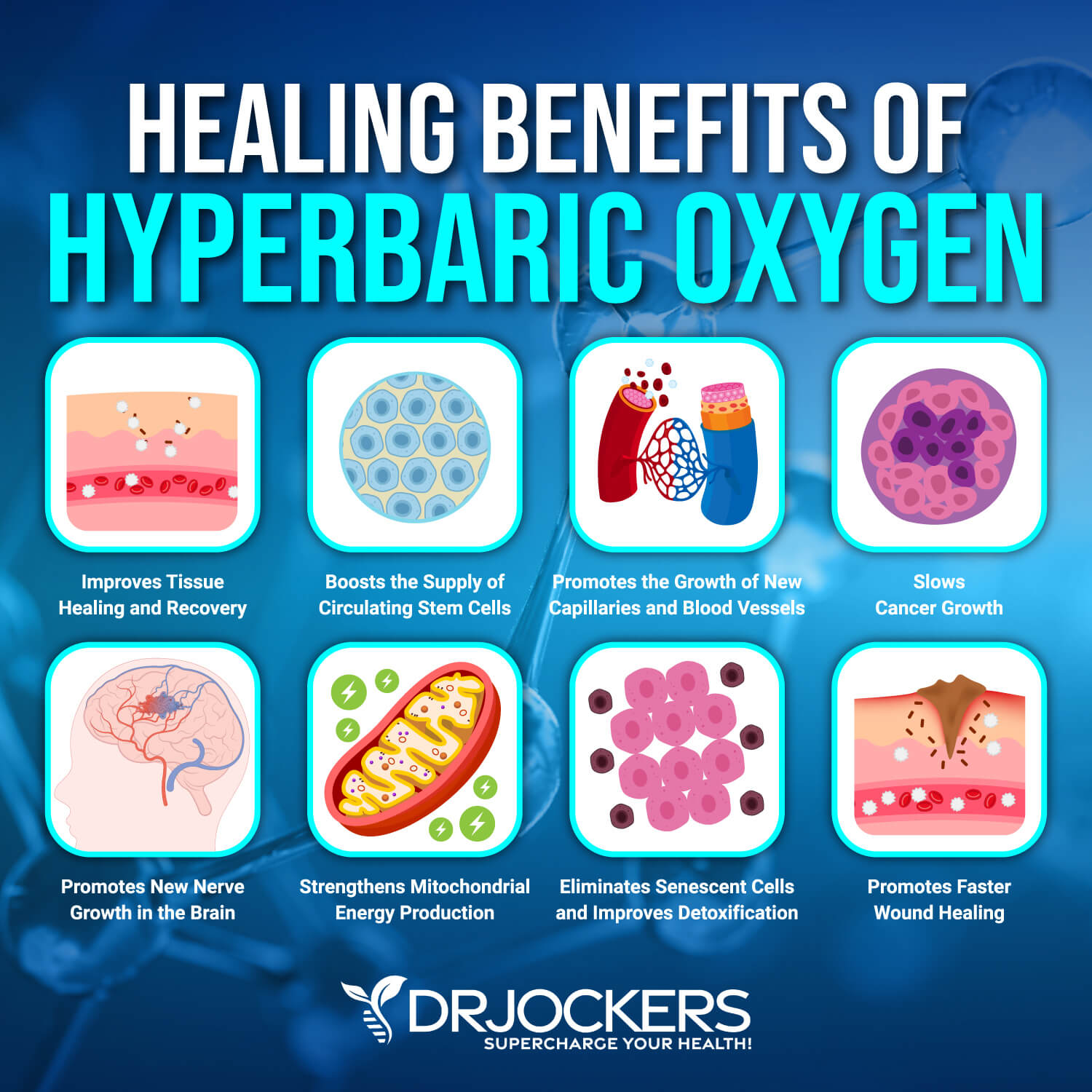
Final Thoughts
Brain degeneration is a serious issue that affects millions of people in the US and around the world. The symptoms of brain degeneration memory problems, confusion, and mood changes. To protect your brain from brain degeneration, follow my tips and try my natural solutions.
You may notice improvements not only in your cognition, mental sharpness, mood, and energy but also in your overall health. If you want to work with a functional health coach, I recommend this article with tips on how to find a great coach. On our website, we offer long-distance functional health coaching programs. For further support with your health goals, just reach out and our fantastic coaches are here to support your journey.
Inflammation Crushing Ebundle
The Inflammation Crushing Ebundle is designed to help you improve your brain, liver, immune system and discover the healing strategies, foods and recipes to burn fat, reduce inflammation and Thrive in Life!
As a doctor of natural medicine, I have spent the past 20 years studying the best healing strategies and worked with hundreds of coaching clients, helping them overcome chronic health conditions and optimize their overall health.
In our Inflammation Crushing Ebundle, I have put together my very best strategies to reduce inflammation and optimize your healing potential. Take a look at what you will get inside these valuable guides below!





Missed a big one: Mold mycotoxins. Treatments are ineffective for people with poor detox genes (GST, BDNF, MTHFR and genetically sensitive to mold.
Hey Cynthia – you are absolutely correct! We will add that to the image!
And, what about EMFs; microwave radiation from 3, 4 and the new fifth generation mobile – military grade millimetre wave technology – known as 5G from ‘smart’ phones, tablets, PC’s, wi-fi, and cell towers? Thousands of peer reviewed studies on the biological / neurological effects (including leakage of the blood brain barrier) on all biological life forms, constitute the sea of these invisible frequencies we swim in daily.
Thank you however for your excellent info graphics (even though I cannot ethically agree with killing animals – grass fed – or human).
References
Dr Devra Davies: https://ehtrust.org/
https://ehtrust.org/key-issues/the-environment-and-health/wireless-radiationelectromagnetic-fields-increases-toxic-body-burden/
5G APOCALYPSE – THE EXTINCTION EVENT
https://www.youtube.com/watch?v=C2Z_cSL24eo&t=8s
INTERNATIONAL APPEAL
Stop 5G on Earth and in Space
There are 204,356 signatories from 203 nations and territories as of March 9th, 2020
https://www.5gspaceappeal.org/the-appeal/
Yes 5G and EMF exposure is another factor. Thanks for sharing!
Do you recommend red light therapy?
Yes absolutely! Here is a helpful article: https://drjockers.com/red-light-therapy/
Is hyperbaric oxygen therapy good for pd and where to try it
Thank you
Yes absolutely it is!
Dear Dr Jockers,
Few years back I would have agreed with all the suggestions and recommendations. However, this has changed since my 74 yo father was diagnosed with Alzheimers disease and recently dementia, 2 years ago.
His diet and lifestyle was as good as you can get, and my mum’s – quite the opposite, though, it is him that has been diagnosed.
For as long as I can remember, my father ate healthy, jogged every morning, enjoyed social life, did not drink or smoke, spoke 5 languages, worked past his retirement age… He was a very bright, lively human being with a great sense of humour… His other body functions are just fine, his health was always in great condition… So… what happened?
There is no known cure for Alzheimers, nor proven guidelines for prevention… All in all, my not-so-much-looking-after-herself mum is now looking after her husband who was all for healthy lifestyle.
So sorry to hear about your father. Although a healthy lifestyle is important, that alone dosn’t tell us if he was exposed to a high level of environmental toxins or infections that may have driven the development of his disease. We can prevent these diseases but we need to embrace functional medicine and do advanced labs to look for underlying factors before they spiral out of control. Blessings!
So sorry to hear this about you father. I wonder if he ever had a head injury? It can be as simple as hitting ones head hard on a car door frame, nothing happened, all is well. But it seems as I have observed in various situations cumulative impact of these minor events can add up. One thing that helps recovering from head injuries like the one I described (or forceps birth) are warm castor oil compresses on lower belly. That comes from wisdom of Edgar Cayce’s files, as practiced by Dr.Garey in Tucson. It helped me to repair brain injuries before they could add up to a long term impact.
https://cayce.com/william-a-mcgarey/
Dear Dr Jockers,
Thanks for the detailed sharing on brain degeneration natural solution.
One university classmates’ father got PSP(progressive supranuclear palsy). Can I recommend him to try some above tips on natural solution? Or if any special tips useful for this disease? Thanks.
Sorry to hear this! Here is a helpful article: https://drjockers.com/glymphatic-system/
I get very low blood sugar in the night. This produced restless leg syndrome. In order to stop it, I get up and eat 3-4 sugar cubes. That is very effective. I would like to be able to stop the RLS without eating the sugar.
Louis, I would recommend following a low-carb, ketogenic style diet and this will help you get your blood sugar more stable and help the RLS. https://drjockers.com/restless-leg-syndrome/
I recovered from mycotoxins, CIRS, ME/CFS only to have that evil virus infect me June 6th and now it inflames my brain and mitochondria are dead again. Nothing that helped works now. My husband wants me to stop trying and DIE. Any New ideas?
Very sorry to hear about this, here is a helpful article for you Cindy: https://drjockers.com/post-viral-syndrome/
Find a knowledgeable functional practitioner who can test tor underlying causes, other viruses, etc. and help you with long haul C. C. Virus is known to bring Epstein Barr to the surface and must be addressed. Lymes disease can also surface after mold, stress, etc. I tested negative for Lymes with CIRS but after C., I tested positive. Praying you’ll find relief! Do not give up. God loves you.
I’ve experienced lots of brain noise, neurons firing, hissing, constantly for 10 months. I was using nocotine lozenges 4mg, 10 to 12 per day for 12 months and stopped, discontinued taking them, 10 days later my brain felt as if it were exploding. I felt suicidal, still do, please tell me if I will get better.
So sorry to hear about this. I would focus on reducing brain inflammation!